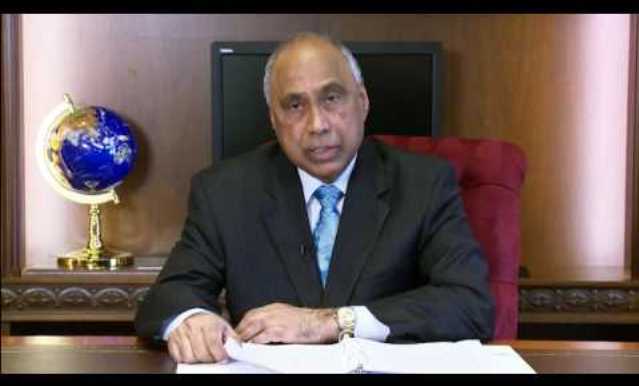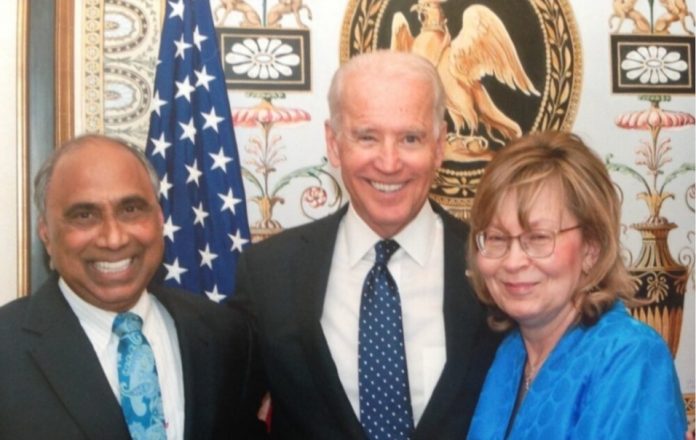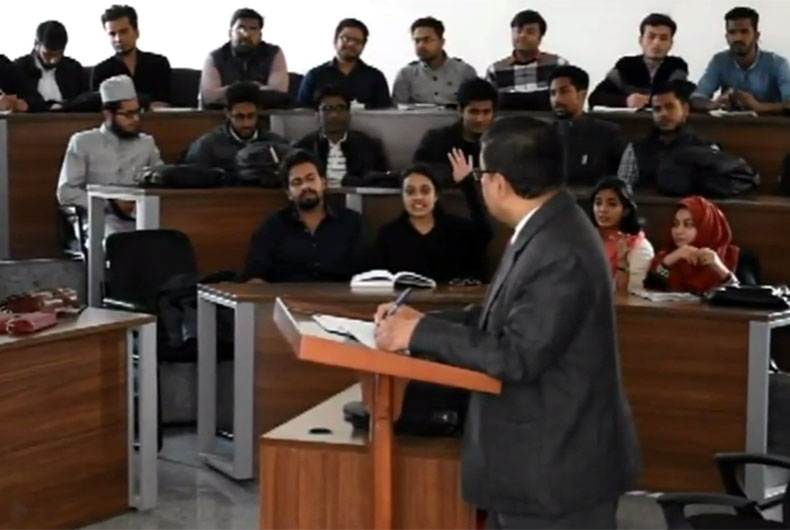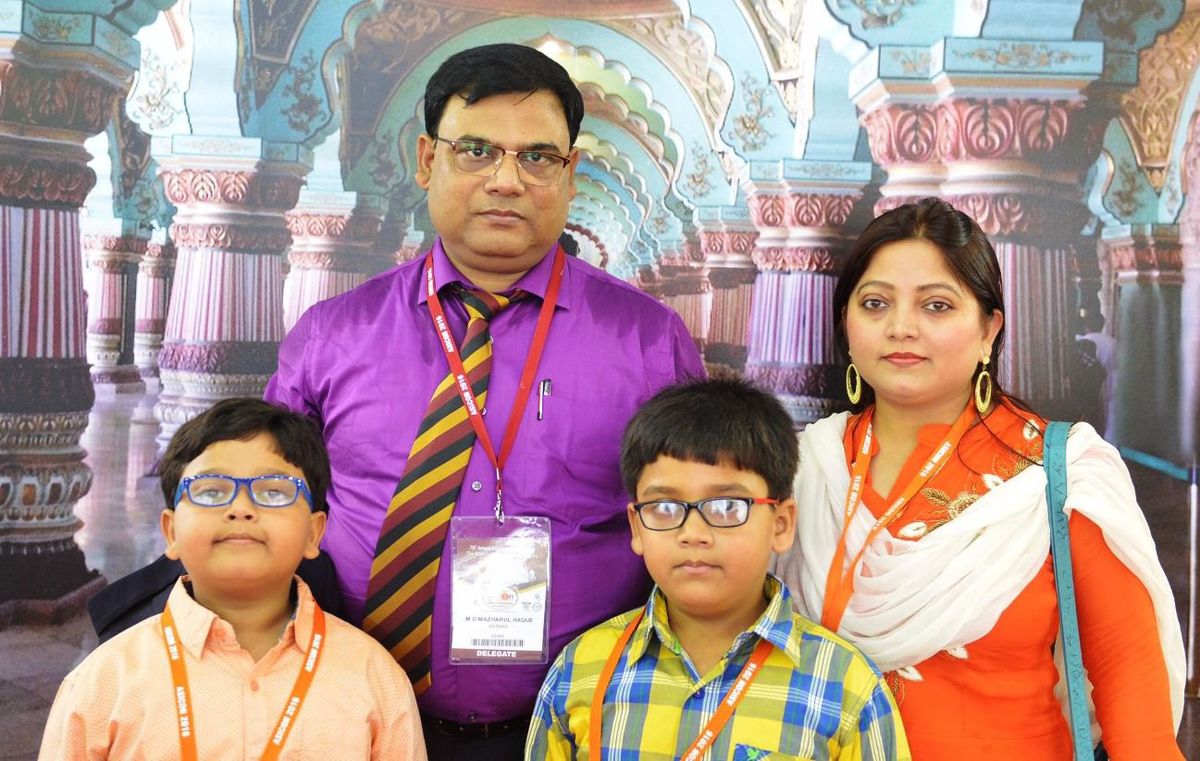UTTAR PRADESH / U.S.A:

In the realm of Indian Muslims and the Indian Muslim diaspora, the name of Frank F. Islam commands instant recognition and reverence. An illustrious entrepreneur, philanthropist, and a prominent civic and intellectual figure, he has become an indomitable force for the advancement of Indian Muslims through his unwavering commitment to education. His influence extends far and wide, gracing numerous boards and councils at prestigious institutions such as Johns Hopkins University, American University, and George Mason University.
His philanthropic endeavors have left a mark of grandeur on his alma mater, Aligarh Muslim University, where he has erected the splendid Frank and Debbie Islam Management Complex. Not stopping there, his native village, Kaunra Gahni, bears witness to his magnanimity with the establishment of the Frank and Debbie Islam Health Clinic, a project dedicated to the betterment of its people.
As the visionary leader of FI Invest Group, a venture he founded after selling his information technology firm, QSS Group, in 2007, Mr. Frank Islam exudes a profound understanding of global economic affairs. His keen eyes closely monitor the economic activities of two colossal nations, the United States and India, while he remains deeply immersed in the intricacies of American politics and economy. His connections with former President Barack Obama and the current President Joe Biden stand testament to his prominence in political circles. An accomplished writer, he has penned two books, solidifying his intellectual prowess.
Undoubtedly, the economic condition of a country charts its future trajectory, and in this domain, Mr. Frank F. Islam emerges as a seasoned expert. In this exclusive interview with Alize Najaf, he graces us with invaluable insights into the economic dynamics of India and beyond.
AN: Your dedication to uplifting Indian Muslims through education and philanthropy is truly commendable. Could you share with us some of the impactful projects you’ve undertaken in this regard?
Mr. Islam: Certainly. I’ve had the privilege of contributing to the development of my alma mater, Aligarh Muslim University, by constructing the Frank and Debbie Islam Management Complex. Additionally, in my native village Kaunra Gahni, we’ve established the Frank and Debbie Islam Health Clinic, which aims to provide essential healthcare services to the community.
AN: Your journey as an entrepreneur is remarkable. How did you establish the FI Invest Group, and what advice would you give to aspiring young entrepreneurs?
Mr. Islam: Building a strong and talented team has been pivotal to my success in business. Aspiring entrepreneurs should surround themselves with like-minded individuals who share their vision and values. It’s essential to believe in oneself and the team while daring to dream big. Woody Allen once said, “90% of life is just showing up.” I believe in focusing on the remaining 10% and maximizing efforts to achieve one’s goals.
AN: Turning our focus to economics, the relationship between the United States and India is growing stronger. Is the strategy to counterbalance China a driving force behind this development?
Mr. Islam: While China’s influence is a factor in strengthening U.S.-India relations, it’s not the sole driving force. The convergence of India and the United States is based on shared interests and values as the world’s largest democracies. From artificial intelligence to climate change, there are numerous common areas of focus.
AN: Agriculture plays a significant role in the economy of developing countries. How important is agricultural production for a country’s economic development?
Mr. Islam: Agricultural self-sufficiency is vital for any nation to sustain its population without relying heavily on imports. The Covid-19 pandemic taught us the value of self-reliance during supply chain disruptions. While developed economies rely less on agriculture for employment, developing nations often have a larger population dependent on the sector.
AN: The economic reforms introduced by Dr. Manmohan Singh and Prime Minister Narasimha Rao are often credited with changing India’s economic trajectory. What is your view on their impact?
Mr. Islam: The economic reforms of the 1990s were transformative for India. They set the country on a path to becoming the fifth-largest economy and beyond. Prime Minister Rao and Dr. Singh’s vision played a pivotal role in this positive transformation.
AN: What are your predictions for India’s economic growth in the next five years?
Mr. Islam: All indications point to substantial economic growth for India in the coming years. According to the IMF, India is expected to contribute 15% to global growth this year. The organization further estimates a 6% growth rate for India in the current year, setting the stage for further progress.
AN: India’s economic growth still lags behind China’s. What factors do you think are responsible for this difference?
Mr. Islam: China had a head start in initiating economic reforms, while India opened its economy later. China’s unwavering focus on manufacturing and global investments played a significant role in its economic growth. However, India possesses the potential to surpass China with appropriate policies and continued reforms.
AN: It’s evident that your expertise in economics is vast. Do you have any plans to contribute to India’s economic progress?
Mr. Islam: After selling my company, my wife and I founded our family foundation to dedicate ourselves to philanthropy. We believe in giving back to society, primarily focusing on education and healthcare in Uttar Pradesh, my home state. By supporting institutions like Aligarh Muslim University, we aim to contribute to India’s progress from the grassroots level.
AN: Thank you, Mr. Frank F. Islam, for sharing your insights and expertise with us. It has been an enlightening conversation.
Mr. Islam: Thank you for having me, Alize. It was a pleasure discussing these critical economic matters.
source: http://www.muslimmirror.com / Muslim Mirror / Home> Interviews / by Alize Najaf / July 30th, 2023











